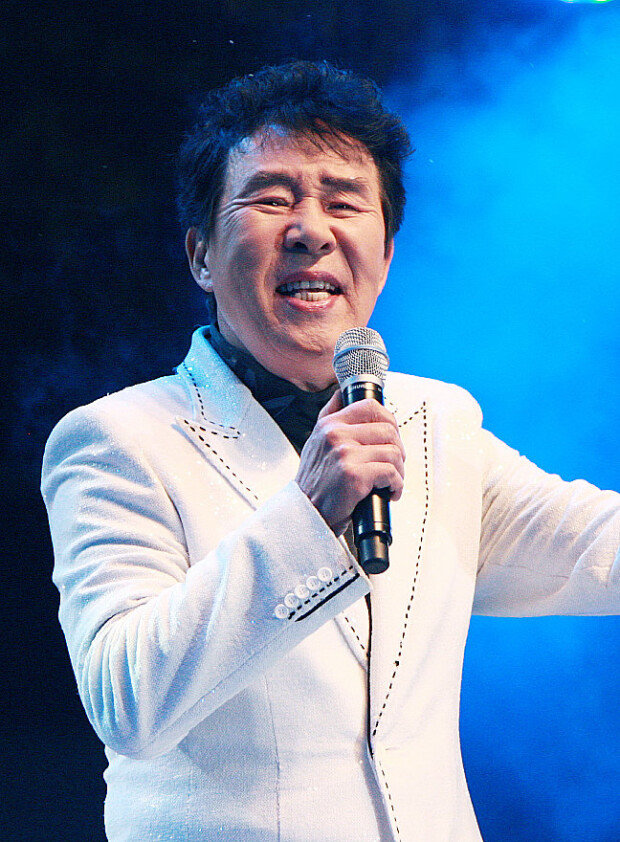Song Dae-kwan passes away, leaving behind songs of hope
Song Dae-kwan passes away, leaving behind songs of hope
Posted February. 08, 2025 07:24,
Updated February. 08, 2025 07:24

Song Dae-kwan, a singer beloved for comforting the struggles of ordinary people through his music, passed away on Friday at the age of 79.
According to his family, Song had complained of feeling unwell the day before and visited the emergency room at Seoul National University Hospital. However, he suffered a heart attack during treatment and passed away. “He had no underlying conditions or chronic illnesses, making his sudden passing all the more shocking,” said his agency, Star Lineup Entertainment. It was known that Song had been diagnosed with bile duct cancer several years ago but had since recovered.
Born in 1946 in Jeongeup, North Jeolla Province, Song endured extreme poverty in his childhood, to the extent that he reportedly had to eat pine tree bark. He debuted in 1967 with the song “A Generous Man” but remained relatively unknown for nearly a decade. His breakthrough finally came in 1975 with “Sunny Day about to Come,” which became a massive hit. The song’s success helped him rise to prominence, earning accolades such as MBC’s Top 10 Best Singer Award and KBS’s Song of the Year Award.
In 1980, Song abruptly left the music industry and immigrated to the U.S. due to the decline of the entertainment industry, which had made his future uncertain. He returned to South Korea in 1988, and in 1990, his song “Because Of” sold over 200,000 copies, marking his grand comeback. He continued his success with hits such as “One Ticket” (1992) and “Four Beats” (1998), solidifying his place as one of the “Four Kings of Trot” alongside Hyeon Cheol, Tae Jin-ah, and Seol Un-do. The eldest of the four, Hyeon Cheol, passed away last July.
Song was particularly known for his close friendship with singer Tae Jin-ah, forming an inseparable musical duo. “Just last month, he told me, ‘I’m healthy, so you should take care of yourself instead,’ and now he’s suddenly gone. I’m in shock,” Tae shared his grief with the Dong-A Ilbo. “He was one of the most compassionate figures in the music industry, always supporting both his seniors and juniors.”
Song also served as the second president of the Korea Singers Association from 2008 to 2010, succeeding Nam Jin. In 2009, he protected artists’ rights by filing a lawsuit against Japanese karaoke companies for unauthorized use of South Korean songs. In recognition of his contributions to Korean culture, he was awarded the Okgwan Order of Cultural Merit in 2001. “The 1980s marked a renaissance for trot music, with a brighter and more cheerful style. Song, in particular, had a warm and relatable image that brought hope to many ordinary people,” popular culture critic Kim Heon-sik commented.
In 2012, it was revealed that Song was the grandson of Korean independence fighter Song Yeong-geun, which drew “I feel honored knowing that my grandfather’s sacrifice contributed to Korea’s liberation,” Song expressed his pride on the radio last year.
사지원 기자 4g1@donga.com







